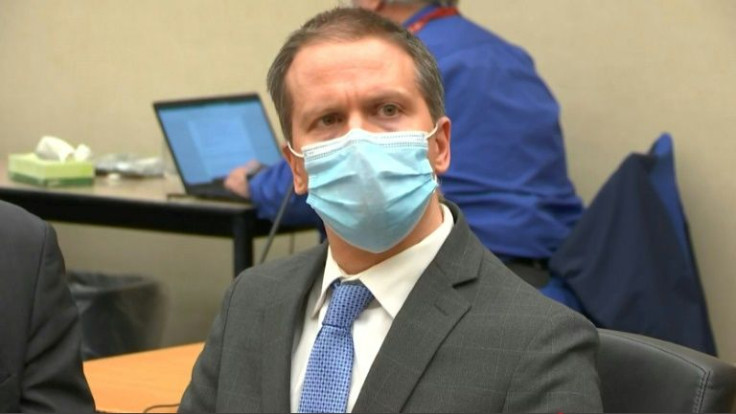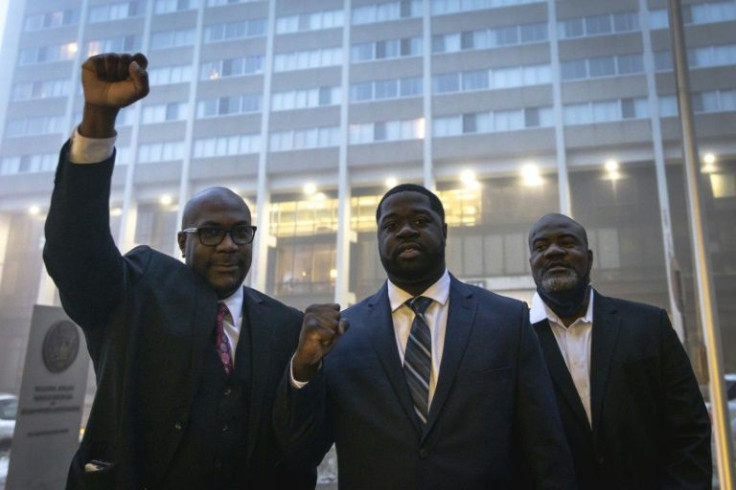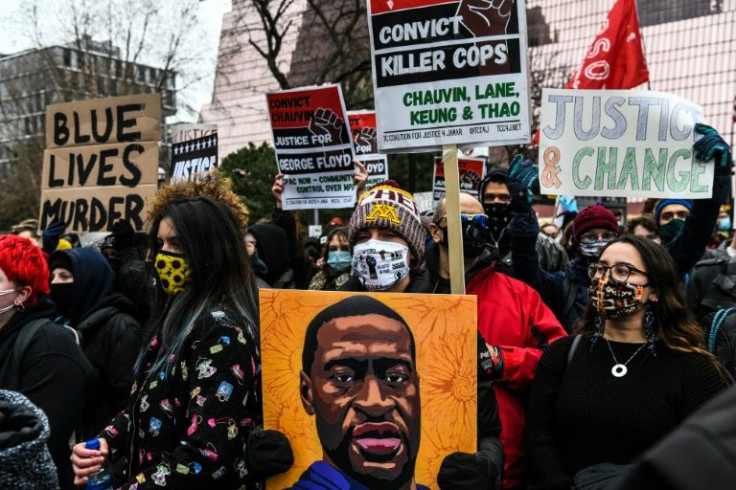Officer Who Murdered George Floyd Pleads Guilty To Violating His Rights
Derek Chauvin, the white former Minneapolis police officer convicted of murdering George Floyd, pleaded guilty Wednesday to violating the African-American man's civil rights -- his first acknowledgement of criminal wrongdoing in the case.
Chauvin, 45, pleaded guilty in US District Court in St. Paul, Minnesota, to federal charges of using excessive force for holding his knee to Floyd's neck for nearly 10 minutes on May 25, 2020.
In a plea agreement with the Justice Department, Chauvin "admits that his willful use of unreasonable force resulted in Mr. Floyd's bodily injury and death" and that he "knew that what he was doing was wrong."
"The defendant also knew there was no legal justification to continue his use of force because he was aware that Mr. Floyd not only stopped resisting, but also stopped talking, stopped moving, stopped breathing, and lost consciousness and a pulse," it said.

Floyd's death, which was filmed by a bystander on a cellphone, set off months of Black Lives Matter demonstrations throughout the country over police abuse of African-Americans.
Chauvin also pleaded guilty to violating the consitutional rights of a 14-year-old boy in a separate case. In that 2017 incident, Chauvin held the handcuffed boy facedown on the ground and struck him on the head multiple times with a flashlight.
"While recognizing that nothing can repair the harm caused by such acts, the Justice Department is committed to holding accountable those who violate the Constitution, and to safeguarding the civil rights of all Americans," Attorney General Merrick Garland said in a statement.
Chauvin was convicted of Floyd's murder in a Minnesota state trial in June and was sentenced to 22 and a half years in prison.

Under the plea agreement, he will face a sentence of between 20 and 25 years in prison on the federal charges to be served concurrently with or beyond the sentence in the state murder conviction.
That ensures the former Minneapolis policeman will spend years in prison, whatever happens with an appeal he has filed on the state murder charge.
He will be allowed to serve his sentence in federal rather than state custody.
Chauvin had originally pleaded not guilty in the federal rights case but changed his plea in the face of possible life imprisonment.

In May last year, Chauvin, a 19-year veteran of the Minneapolis police force, was seen on video kneeling on Floyd's neck, as the 46-year-old lay face down and handcuffed on the ground saying repeatedly "I can't breathe."
That became the mantra of subsequent protests, which gained force as other unpunished cases of mistreatment or killings of Black Americans by police came to light.
Three other now ex-officers were at the scene of Floyd's death and are to be tried separately by the state: Tou Thao, Alexander Kueng and Thomas Lane.
The three also face federal civil rights charges and have pleaded not guilty.
Civil rights lawyer Ben Crump, who has represented Floyd's family, called the resolution of the federal case a "historic day."
"Before the tragic and needless death of George Floyd, there was little expectation that a white police officer would ever be held accountable for murdering a Black man," he said.
"When Derek Chauvin was held to account, the jury -- and people across the country -- finally said enough was enough."
George Floyd's brother Philonise Floyd said outside the courthouse that his family moves ahead but "can never heal."
He said people frequently tell him that George Floyd's death changed the world.
"I'm happy that more people are willing to talk about what's going on across America," he said.
However, he added, "I cry about it all the time."
"We can never have George back."
© Copyright AFP 2024. All rights reserved.





















